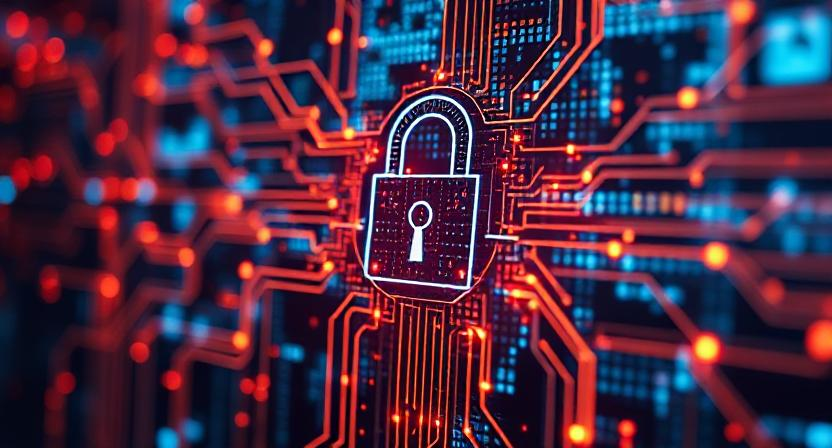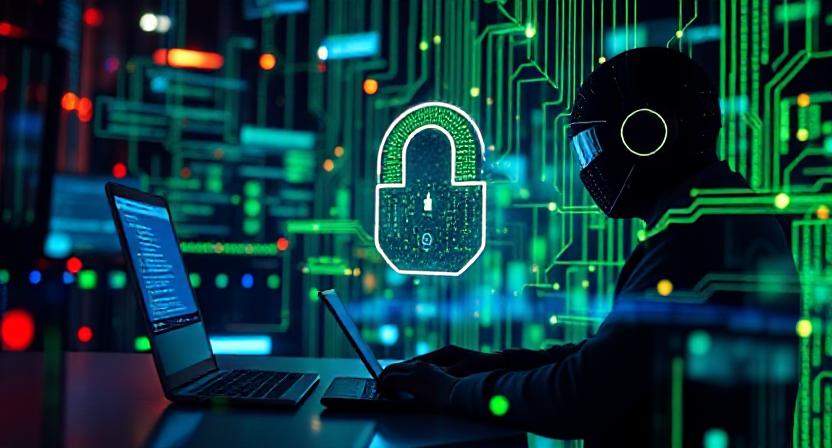Cybersecurity has grown to be a major issue for governments, businesses, and people both personally in the technologically driven world of today. Demand for cybersecurity experts grows along with the increasing amount of cyberattacks. Remote jobs, internet work, and work from home possibilities within the profession have surged in response to this need. Should you be thinking about a career in cybersecurity, the field presents a variety of positions that provide for flexibility, competitive pay, and the possibility to work from the comfort of your house.
The realm of cybersecurity jobs including those in remote work, online employment, and work from home roles will be discussed in this post. From career routes to pay expectations, necessary skills, and how you could find a cybersecurity job fit for your objectives, we will address everything.
Define cybersecurity here
Cybersecurity is the discipline of safeguarding computer systems, networks, and data against assaults including malware, ransomware, hacking, data breaches, and other kinds of threats. By guaranteeing the integrity, confidentiality, and availability of data and systems, cybersecurity experts help to prevent illegal access and thereby guard against cyber dangers.
Cybersecurity is a vital discipline as all sectors, from banking to healthcare, education to government, depend on digital infrastructure growingly. Demand for talented cybersecurity experts keeps rising as cybercrime gets more complex.

The Emergence of Cybersecurity Remote Work and Online Jobs
Cybersecurity is not an exception; in recent years, remote jobs and internet work across several sectors have become very popular. The COVID-19 epidemic hastened the need for remote employment, and many cybersecurity experts now value the freedom to work from anywhere with internet connection or from home.
Remote work in cybersecurity have becoming somewhat common as more companies use digital-first approaches. These roles not only provide work life balance but also help businesses to leverage a larger worldwide talent pool. As companies value cybersecurity while adopting flexible work environments, this change to remote work in cybersecurity is projected to continue.
Advantages of Cybersecurity Remote Jobs
For experts, remote cybersecurity jobs provide a number of advantages including:
Working from home cybersecurity positions let experts better balance their work life by controlling their own schedules.
Remote work opens employment marketplaces that would not have been accessible otherwise by making it simpler to reach prospects with firms all across the globe.
Working remotely lets professionals live in more reasonably priced areas while yet keeping access to highly paid jobs, therefore saving transportation expenses.
Remote Cybersecurity Jobs: A Sample
Professionals in cybersecurity can seek a variety of remote employment including:
These experts track systems for security risks, do vulnerability analyses, and handle incident response.
Pen testers ethical hackers simulate cyberattacks to evaluate the security of a company’s systems and pinpoint flaws.
Cybersecurity experts provide firms professional recommendations on how to raise their security posture.
Investigating security breaches and supporting companies in recovery from assaults, incident responders are:
These experts develop and upkeep of safe network infrastructure for companies.
Employment Prospects in Cybersecurity
There are many job prospects in the broad field of cybersecurity including several professions and specialities. Together with what they include, below is a list of some of the most often used cybersecurity job titles:
One is a security analyst.
Monitoring an organization’s network and systems to identify security hazards falls to security analysts. They could handle chores include looking at security events, doing vulnerability tests, and creating plans to stop intrusions. Your job as a remote security analyst would be to make sure the security systems of a company stay current and sensitive to changing risks.
Two: Ethical Hacker’s Penetration Tester
Hired to replicate assaults on systems of an entity, penetration testers help to find weaknesses. They are quite important in identifying security flaws before malevolent hackers may take advantage of them. Many times working remotely, pen testers execute simulated hacks from their home office and provide thorough reports to companies.

consultant in security
Working with companies, security consultants evaluate their security system and offer recommendations for enhancements. They offer knowledgeable analysis on risk management, compliance, data security, and more. Working remotely for several customers, a cybersecurity consultant gives flexibility in terms of both location and workload.
Incident Reaction Agent
Investigating and reacting to security breaches, incident responders represent front-lines of cybersecurity. Their roles are to help companies heal from data leaks and lessen the effects of cyberattacks. Many incident responders operate remotely, investigating events and liaising with other team members across different sites using digital technologies.
Engineer in Network Security
Design and implementation of technologies to safeguard the network infrastructure of an organisation falls to network security engineers. These technicians make sure routers, firewalls, and other systems are set to reject cyberattacks. Usually using sophisticated remote access capabilities to operate systems and monitor the network from anywhere, remote network security engineers Salary Anticipated in Cybersecurity Positions
Salary Expectations
Experience, specialisation, and location all have bearing on the pay for cybersecurity positions. Generally speaking, though, especially in specialised fields or for big companies, cybersecurity experts usually make competitive pay. Here are some typical pay ranges for common U.S. cybersecurity positions: Security Analyst: $110,000 year, $70,000
Ethical Hacker Penetration Tester: $80,000 – $130,000 yearly
Security Consultant: $90,000 to $150,000 annually
Incident Responder: $120,000 year, $75,000
Engineer in Network Security: $85,000–$140,000 annually
For many cybersecurity experts, remote positions are appealing as they typically provide extra advantages such lower transportation costs. Essential Knowledge for Cybersecurity Employment
Particularly in distant positions, cybersecurity experts must combine technical knowledge with soft skills if they are to thrive. A successful career in cybersecurity calls on the following abilities:
Technical Competencies
Protection of network infrastructure depends on an awareness of firewalls, intrusion detection and prevention systems, and VPNs.
Ethical hackers must be familiar with Kali Linux, Metasploit, and Wireshark among other penetration testing tools.
Many cybersecurity positions require a solid grasp of encryption methods and data security.
Incident responders must be knowledgeable on how to spot and handle cybersecurity events including forensics and malware analysis.
Knowing cloud security platforms and best practices becomes increasingly important as more businesses migrate to the cloud.

Soft Skills
Cybersecurity experts must be creatively and critically minded to outsmart attackers and tackle difficult problems.
Especially in distant professions where cooperation is typically accomplished by email, chat, or video conference, properly explaining security threats and solutions is absolutely vital.
Specifically when looking over logs and seeing weaknesses, detecting and stopping cyber attacks calls for a sharp eye for detail.
The field of cybersecurity is always changing, hence experts have to be open to lifelong learning and adaptation to fresh risks and technology.
Expert Advice for Securing a Remote Cybersecurity Position
Although cybersecurity employment have enormous promise, especially for remote roles, competitiveness can be strong. These expert pointers can help you stand out:
Obtain Appropriate Certifications
One great approach to show your area knowledge is via certificates. Among the most known cybersecurity credentials are: Certified Systems Security Professional (CISSP)
Certified Information Security Manager (CISM), Certified Ethical Hacker (CEH) Comptia Security+
Getting one or more of these certificates can help you appeal more to remote cybersecurity employment.
Project a strong online presence
Building a good online presence is very vital as many cybersecurity jobs including work-from home possibilities involve internet apps. Make a professional LinkedIn profile stressing your certificates, knowledge, and abilities. To increase your profile in the community, think about helping with cybersecurity forums, blog entries, or webinar presentations.
Keep Current on Sector Trends
Since cybersecurity is a fast changing discipline, one must keep current with the newest developments and dangers. To maintain your skills current and applicable, follow industry news, join internet forums, and enroll in online courses.
Network Including Other Professionals
Your job hunt might benefit much from the great tool networking offers. To meet other experts in the subject, join cybersecurity groups, go to virtual conferences, and use online communities. Referrals and recommendations help many distant positions to be filled; so, developing relationships can provide doors to fresh prospects.

Conclusion
Cybersecurity is still a lively and expanding sector. The need for knowledgeable cybersecurity experts will only grow as cyberattacks get more complex. Remote positions provide flexibility, excellent pay, and the opportunity to work with innovative technology from almost anywhere. Now is a great moment to investigate the prospects this discipline presents, whether your career is just beginning or you want to move to a remote cybersecurity employment. With the correct credentials, knowledge, and networking contacts, you may start a rewarding cybersecurity profession allowing you to work from home and really help to safeguard digital assets.


